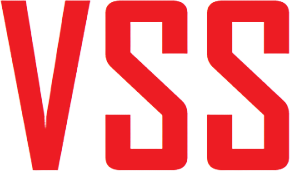Here are just some of the myths that an end user will be exposed to when selecting systems to run their business.
The nature of the industry is that small innovative software houses will produce new software that gains market share and then they will often be gobbled up by the big companies either to employ the new innovations as part of their offerings or simply to expand their customer base.
The big software companies in particular may contribute to the spread of these myths in order to suit their sales approaches. Here they are:-
- All the software in the business should be from one software manufacturer or be one software brand.
- Only the big software houses can provide the highest quality software solutions.
- Businesses should always strive to employ the latest software.
- One size of software can fit all sizes of business.
- The priority in providing software to run the business should always be the accounts.
- The software running the business should employ one software programming language.
- All the software in the business should be from one software manufacturer or be one software brand.

For this to have even a small element of truth about it the software providers making the claim would have to have vast experience in meeting the special requirements of most industries. The things that the big providers of software have in common are usually around their financials whether it is Oracle, SAP, Sage etc because financials have to have a commonality in order to meet, amongst other things, the requirements of legislation.
It is for this reason that all these big names rely on software from smaller companies that produce specialist “niche” software that fits particular types of business.
This is where the saying “best of breed” comes from in relation to software in that for a particular industry there will be a small number of proven successful solutions, typically.
It is advisable when looking for a niche solution to qualify how wide that niche is because companies that have bought a number of different but widely related software to resell may not have the expertise in every area.
Take software to run service companies as an example. A provider may know much about service solutions for the maintenance of commercial refrigeration and general simple service applications but very little about the needs of office equipment or computer network companies.
Also the offerings of the larger software houses are generally not all developed by themselves but applications bought from others – just look at the origins of Microsoft Office products for example.
In software there is no such thing as one fits all.
- Only the big software houses can provide the highest quality software solutions.
Please note the comments reference myth 1 before because the big suppliers will always push their financials. This is made easy for them when dealing with companies in many different locations as they will play the visibility through common accounts card.
However financials are just that and may have little or no relevance to the operational needs of a business whether it is a car dealer, an insurance broker, a travel company, a transport company, a builder and so on.
Beautiful ledgers, if indeed they are that, don’t sell cars, don’t organise insurance, don’t schedule deliveries or handle the multiple trades required to build houses etc.
| However there are three other enormous dangers when dealing with the large software providers.
First of all sales are separated from implementation so once he or she has made the sale he or she is off to obtain other sales and in most cases is not at all in touch with the success of the implementation. Secondly unless your business is ginormous you are just another small fish in a very large pool. |
 |
As a result things like dealing with software inadequacies, obtaining changes etc become very difficult or even non-existent as services.
Finally the big providers have many reference sites so they can always find an end user that will speak highly of them. Swept under the carpet in the main are all the failed implementations unless they hit the headlines such as “NHS Software Costed Millions But Did Not Work.”
A small company like VALE relies on successful implementations so if we fail then we could be out of business and the person who persuades you to commit to us will be responsible for the full implementation and that is why a number of very large companies chose us because they can rely upon us and can influence our development programmes.
For the best attention to detail smaller is better than larger.
- Businesses should always strive to employ the latest software.
 |
Yes there will always be sexy looking features advertised as new products are released but these need to be put in perspective.
New products will be marketed very often on the basis of their new, for want of a better word, “gimmick”. It does not mean that in other areas the product is as well rounded as existing proven products. |
Unless what the “gimmick” offers is pivotal to your business then be very wary.
There is another even more dangerous reason and that is new releases of software always have bugs and does your business want to be the one that finds them and is inconvenienced by them?
Also if a software provider is spending heavily on advertising they may be financing the campaign in part by being tight on expenditure elsewhere e.g. in support, training etc.
VALE always thoroughly tests any new software whether it is VALE’s own or other software that links to it. That is why all our end users have a Test Company configured as the main live system at no extra charge.
If something is new it is often not proven widely or, in some cases, even safe.
- One size of software can fit all sizes of business.
This is so patently untrue that it hardly needs a comment. Would Quickbooks be capable of running the Ford Motor Company or should a local plumber with a couple of staff need to employ Oracle or SAP?
Even Sage offers several levels of financial systems that vary in the richness of their features and their scalability.
The real challenges in this respect are often posed to the businesses that have grown like Topsy and so consist of various sizes of businesses or even different types of businesses.
Picture a business that started as a manufacturer and grew as such and then vertically diversified into retail shops and then built on internet sales.
The manufacturing business may need a big solution but definitely one that handles scheduling, just in time raw materials purchasing and so on whereas the shops may need point of sale systems and a focus on replenishment whereas the WEB business may need slick order processing and despatch facilities.
| Trying to take a major manufacturing system and to get it to be suitable for retail shops and the WEB business would almost certainly impair the diversified areas of the business.
Therefore the same rules should apply as if these are separate companies. That is implement systems that fit the requirements of the businesses. |
 |
At the highest level to run these businesses as a group then a suitable larger financial system may be adopted as a solution and integrating the niche solutions so that they feed the financial system is probably the best solution.
The same rules apply and that is select the best software to run the operations of the businesses and rely upon integration to make the solutions work at the highest levels.
Adopting and delivering according to this philosophy is why VALE as a software provider who is especially strong at integration has lasted so many years (30+).
- The priority in providing software to run the business should always be the accounts.
 |
It is true that the business needs a sound set of ledgers that will be appropriate for the business, and, often forgotten, with which the relevant end users are comfortable but it is the operational systems that are employed by most people in the business usually.
Please see the comments earlier in the previous section in relation to this. |
The operational software must meet the needs of the business and so, for example, VALE software fits sales and servicing companies best of all.
Also operational performance is the thing upon which customers may judge the business so if the systems are a poor fit then there is a danger that customers will have negative opinions of the business.
VALE overcomes this by integrating to whatever financials that the end user employs or plans to employ even though we have our own financials.
- The software running the business should employ one software programming language.
| On the surface of it this may seem to have merit rather like a garage selling and servicing just one make of car.
However employing just one technology works for the software provider rather than the end user because it means that the supplier needs less width of expertise and that can have cost reduction benefits. |
 |
Think about the different ways that the various departments work in your business and you will see, most likely, that their needs are often contrasting.
For example a user managing the job queues for field operatives might like a visual representation of their queues which will show very quickly if there are overloads for some operatives and too few jobs for others.
Also such an end user might find it very helpful to see the locations of the field operatives on a map and where the current and upcoming jobs are.
Contrast that with an end user posting cash payments who would want to be able to enter data quickly an item at a time and would find having to click on a mouse to accept an entry slow and inconvenient.
This highlights another aspect and that is that for some users having more than one screen open at a time would be very necessary. So the former user might like a screen open in order to enter and allocate jobs and one, even two others open showing the job queues and the map views.
It would be very rare for this to be possible and convenient if one is restricted to one programming language or technology
VALE employs the development tools and languages that fit what the end user is doing.
If, having read this, you might like to explore how VALE with its high values could help your company plug gaps in your systems solutions then please contact us for an absolutely obligation free discussion enquiries@vale.co.uk.
VALE Support Services Limited have never employed salespeople because understanding requirements as opposed to pushing a product is the way to meet end user’s needs. We should know as we have been doing this successfully for over 30 years.
